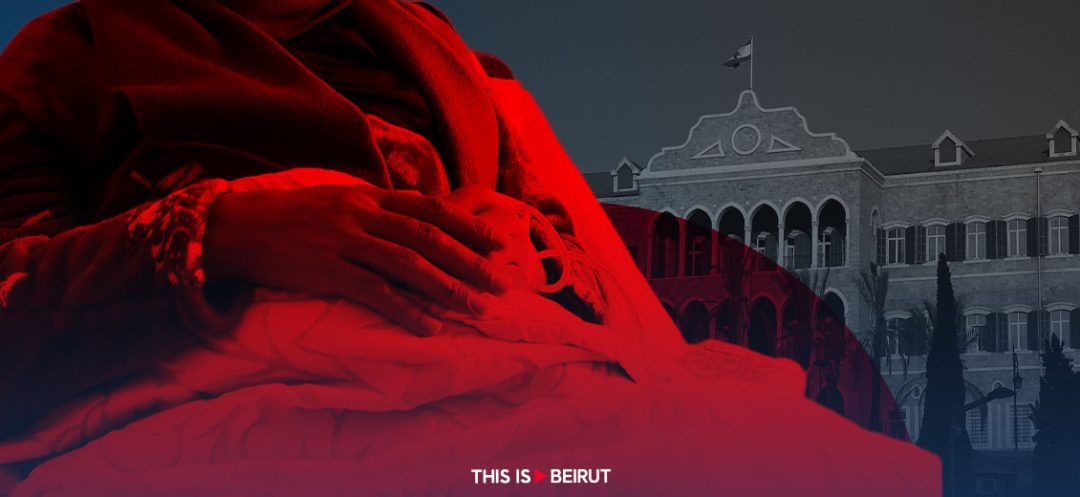
The already alarming situation of oncological patients in Lebanon has reached critical levels due to the lack of efficient and affordable treatment, putting the lives of over 30,000 Lebanese patients at risk.
Given the increasing plight of cancer patients in Lebanon, pointing fingers at the people responsible has become an imperative. The fatal mistakes made can only be blamed on the State and the decision-makers who, through laxity and poor management, have left these patients to their fate. The former have to take responsibility for their mistakes. After all, the term “responsible” cannot be stripped of its essential meaning: the capacity to assume one’s actions.
In Lebanon, every time an official, a minister, or a government fails to accomplish a mission, they wash their hands clean of it and put the blame on the previous government, the precarious economic situation, the central bank, the political opposition, etc., and the list goes on. But is this how public affairs should be managed?
The Rule of Law
Evidently, no one can deny the impact that the economic and financial crisis has had, but this should not be used as a pretext at every chance. In a constitutional state, any leader who is incapable of competently managing a delicate situation or crisis ought to step down in favor of a more qualified person. Such an approach aims to avoid improvised solutions and half measures that could jeopardize the safety – in life-threatening fashion sometimes – of citizens. Clearly, Lebanon is not one of the countries where the rule of law is respected.
Patients in Lebanon, the ones suffering from cancer more particularly, are paying the heavy price of the government’s reckless and irresponsible decision-making. An increasing number of oncology patients are forced to stop their treatment or resort to a less efficient one. Why? Simply because, for lack of funds, the government decided to lift subsidies on most medications – including cancer medicine – without formulating a policy that would ensure the protection of the most vulnerable patients.
The Time Factor
As for subsidized cancer medication, it is seldom available on the market. In fact, it is either out of stock or limited in quantity, which in both cases causes substantial delays to treatment. It is important to highlight that, in fighting cancer, time is crucial as the first stages often give the best chances for treatment success, provided that one acts quickly.
Unfortunately, the imperative of swift and effective action is far from being a priority for the Lebanese government that was busy counting up new Covid-19 cases – which in no way serves the public and only has epidemiological value. Undoubtedly, the government would rather bury its head in the sand with complete disregard for the growing number of cancer patients due to insufficient treatment options.
Underdeveloped Countries
The aforementioned victims are the direct result of the State’s lack of commitment to ensure access to efficient treatment. While scientific research progresses and allows the treatment of previously incurable types of cancer, the Lebanese government seems to regress considerably in its effort to cure this disease. The ministry of public health, with its sterile rhetoric and empty promises, makes little effort to contain this tragedy that plagues the sector.
In the West, personalized medicine such as gene therapy, long perceived as little more than science fiction, is now evolving incrementally and has become the go-to treatment of the 21st century, a revolution for oncology. This groundbreaking achievement was made possible by the approval of cancer therapy that involved immune cells and genetically modified oncolytic viruses.
In Lebanon, the current situation is a grim one. This country, once the chosen destination of patients all over the Middle East, was one of the first in the region to actively engage in clinical trials and embrace all kinds of new medical treatments. Today, however, due to the significant decrease in financing at the Ministry of Public Health, the government considers reducing subsidies considerably and providing only the cancer medication used in underdeveloped countries.
Involuntary homicide
Such measures can seriously jeopardize the Lebanese patient’s access to state-of-the-art treatment, like immunotherapy and targeted treatment, making the medical situation in the country even more dire. One realizes, with a great deal of sadness, that Lebanon, once a leader in medicine in the Middle East, now has cancer patients succumbing to the disease in total silence, because of the State’s neglect.
The actions taken by the Lebanese cannot be perceived as anything other than involuntary homicide, or at best a failure to assist persons in danger. The situation has reached unprecedented levels of gravity, putting 30,000 Lebanese patients at risk of dying. It is essential to highlight, now more than ever before, that this is very much like a cold-blooded genocide. Will the Cabinet’s upcoming session raise enough funds to subsidize the remainder of anti-cancer medications? Only time will tell.
Read more




Comments